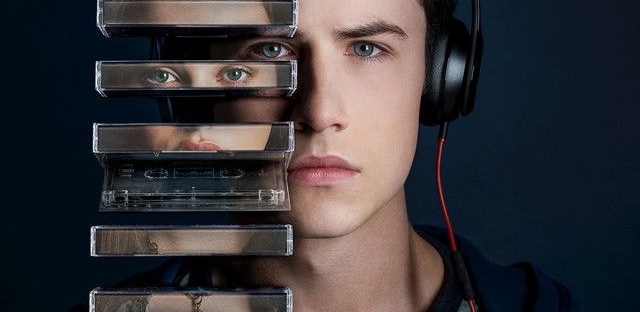I just finished ’13 Reasons Why’ on Netflix last night. My fellow stagey folk out there will most likely know that it was adapted for screen by Brian Yorkey, a lyricist who has already had a lot to say on the subject of mental health. His first Broadway musical, Next To Normal (which I love), written by himself and Tom Kitt tackles the story of a mentally ill woman who experiences electroconvulsive therapy. So as a fan of his, I thought I’d check it out. And if you didn’t read it in the title, spoiler alert!
The story begins in the aftermath of the suicide of 17 year old Hannah Baker. Before she dies, she records thirteen tapes; one for each of the thirteen people she considers to be one of the reasons for her suicide. For the most part, the story is told through the eyes of Clay Jensen, whose journey we follow as he listens to the tapes. It’s safe to say the series has been wildly popular, especially with young people, but not without its controversies. Some people think it sends an important message, going as far as to say that it should be mandatory viewing in schools. Conversely, there are people who think that the picture the show paints around suicide is inaccurate, and fear it may prove to be a trigger for those most at risk.
I have to say I have mixed feelings about the show. I think overall the message is well meaning. ‘Be kind to people, you could save a life.’ Well who can argue with that? But is it somewhat insulting to simplify the situation so much? I don’t profess to be an expert on the subject, but surely the mind of someone suicidal must have so many complexities. They must be experiencing feelings most of us couldn’t possibly fathom. So is it accurate to say we have the power to save someone’s life just by showing them some kindness? Maybe. But maybe not. I think that of course you should always be kind. And maybe it will save lives, but the thing that will always save more is professional help.
People have criticised the show for its brutally honest depictions of rape and suicide. And I do understand why this would upset people. It’s not comfortable to watch. However, I personally believe that the decision to show Hannah’s suicide was a good one. It is a difficult watch, but it isn’t gratuitous. It’s not a pretty or a painless death. It isn’t over dramatised. It is simply honest. And if a show like this doesn’t try to be honest then what even is its purpose?
One thing I cannot fault this show for is its handling of rape and issues of consent. Again, it’s not comfortable. But it brings to light many instances where girls are assaulted, but feel they can’t come forward because they’ve seen what happens to girls who come forward about things like that. Their character is immediately judged and people begin to ask questions: ‘Why was she there? Why was she wearing that?’ In the final episode when Hannah tries to tell Mr Porter what happened to her, she is told that if she didn’t actually say the word no, and she won’t name her attacker, she just has to ‘get over it’. It’s heartbreaking. But it makes the point. Just because someone doesn’t say the word no, that doesn’t make it a yes.
Some are worried that the show ‘glorifies’ suicide. Although I would argue that the act itself is not glorified, here’s something to think about. Hannah takes control of her life, and the people in it, through her death. She is scarily powerful over people in death. Way more so than she was in life. What kind of a message is that? The only way to take control is to kill yourself? Simply not true. There’s also the concept of blame. Hannah leaves tapes for everyone who she considers to be a ‘reason’ for her death. And yes, those people needed to be held accountable for their actions. But is it fair to assign blame? Is it fair for them to carry that burden through their life? How did Hannah compare what Bryce did, and what Clay did, and decide they should both belong in the same category? Ultimately, it was her choice to to do what she did. But it’s impossible to answer who should pay the price (apart from Bryce. Who obviously should.)
Despite all its faults, ’13 Reasons Why’ has pretty much achieved its purpose: It’s got people talking about a subject which is highly stigmatised. It seems like people can’t help talking about it actually. And no matter what you think about its messages, you can’t deny that it has been superbly written and is performed by a stellar cast of actors. I could talk about this for ages. I’m sure there will be people who might agree with what I’m saying, and people who strongly disagree. When you make a show about that kind of subject matter, it will never please everyone. I have my doubts. But I can’t say I wouldn’t watch season 2. Which of course there will be. You can’t just leave Tyler with a box full of guns and say nothing about it.
But in the meantime, I’m gonna watch something cheerful.
Keep reading.
Sophie
Follow me on Twitter
Follow me on Instagram
Follow me on Snapchat @sophie_hello


